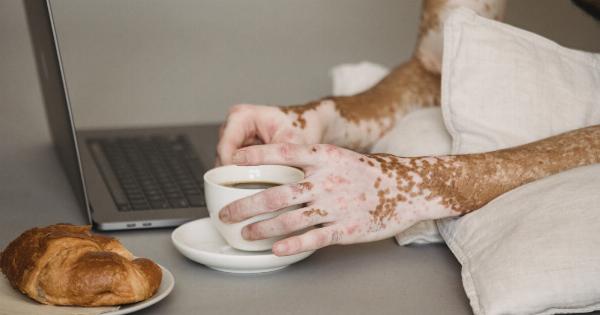Cancer treatment can be difficult and complex. One of the side effects that many people experience is a change in their skin, which can range from mild to severe.
Understanding how cancer treatment can affect the skin is important to manage these side effects and improve overall quality of life.
How cancer treatment affects the skin
Cancer treatments can affect the skin in several ways, including:.
Chemotherapy-induced skin changes
Chemotherapy drugs can cause various skin reactions, ranging from mild rashes and dryness to more severe issues such as blistering and peeling.
These side effects can occur on any part of the body and can last from a few days to several weeks after treatment.
Radiotherapy-induced skin changes
Radiotherapy can also cause skin changes. The skin may become red, sore and itchy at the site of treatment. In some cases, the skin may break down and become uncomfortable.
Surgical scars and wound healing
Cancer surgery can also affect the skin. The skin surrounding the surgical site may become tight, itchy, and discolored. After surgery, the skin may also be slow to heal, and scars may be a long-term result.
How to manage skin reactions from cancer treatment
If you experience skin changes during cancer treatment, it is essential to talk to your healthcare provider about the best ways to manage these symptoms. Here are some tips that may help:.
Keep your skin hydrated
It is essential to keep your skin well hydrated to prevent dryness, cracking, and itching. You can use fragrance-free moisturizers and lotions to keep your skin hydrated. Avoid using lotions or creams that contain alcohol, which can dry out the skin.
Avoid exposing your skin to extreme temperatures and sunlight
Skin that is exposed to extreme temperatures or sunlight can become irritated and inflamed. It is essential to protect your skin from excessive heat or cold.
Wear protective clothing, such as hats and long sleeves, and avoid prolonged exposure to the sun.
Avoid using harsh soaps or shampoos
Use mild, fragrance-free soaps and shampoos that are designed for sensitive skin. Avoid using harsh detergents or fabric softeners that can irritate the skin.
Avoid shaving if your skin is dry and irritated
Shaving can further irritate dry and sensitive skin. If you must shave, use an electric razor or a sharp, clean razor. Apply a fragrance-free shaving cream before shaving to reduce irritation.
Stay well-nourished
Eating a healthy, balanced diet can help your body to heal and recover from cancer treatment. Good nutrition can also help to improve the health and appearance of your skin.
Communicate with your healthcare provider
It is essential to communicate with your healthcare provider about your skin changes and symptoms. They can offer advice and prescribe medication or creams to help manage your symptoms.
Conclusion
Cancer treatment can cause various skin reactions, from mild to severe.
However, there are various ways to manage these symptoms, including keeping your skin hydrated, avoiding exposure to extreme temperatures and sunlight, avoiding using harsh soaps or shampoos, avoiding shaving if your skin is dry and irritated, staying well-nourished, and communicating with your healthcare provider.



























